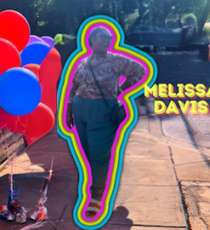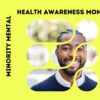
According to the Center for Disease Control, in 2021 African Americans made up an estimated 40% of HIV infections in the United States, while only being 12% of the general population. Stigma, homophobia, discrimination, poverty and limited access to quality health care are significant factors in health outcomes and continue to impact inequities.
The U.S. government has set a goal to reduce the number of HIV infections by 75% by 2025 and 90% by 2030 as part of its Ending the HIV Epidemic in the U.S. initiative.
Health Action Alliance wants to eradicate HIV by 2030.
The U.S. government has set a goal to reduce the number of HIV infections by 75% by 2025 and 90% by 2030 as part of its Ending the HIV Epidemic in the U.S. initiative.
Health Action Alliance, the country’s largest employer network operating at the intersection of business and public health, aims to completely eradicate HIV by 2030.
Mario Harper serves as director for the Health Action Alliance and leads the organization’s effort to eliminate HIV.
Carbon Convos sat down with Harper to discuss why HIV is still so prevalent in the Black community and what can be done to prevent new infections and destigmatize the disease.
Though HIV is an epidemic in the Black community, there is a lot of hope.
June 27 is National HIV Testing Day and was first observed on June 27, 1995 to encourage people to get tested for HIV, know their status and get care and treatment.
Know your status and know your partner’s status. Get tested! (You don’t have to do it tomorrow, but you need to get it done!)
Check out the Carbon Convos interview with Mario Harper.






Social Menu